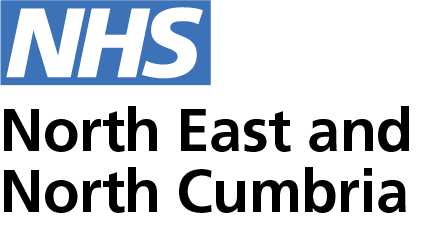£35m plan to improve health in region's most deprived areas
The North East and North Cumbria area has faced long-standing inequalities and poor health for decades, while the North East suffers the worst levels of preventable mortality in the country.
Now a three-year programme is bringing together the NHS and councils with voluntary, community and social enterprise organisations to tackle these issues, and do more to prevent ill health in the first place.
Dr Neil O'Brien, Medical Director for the NHS's North East and North Cumbria Integrated Care Board, said: "A strong, shared focus on these issues can make a real difference in people's lives. We've made great progress in areas like stroke, heart attacks and smoking, but we know there is much more to do.
"Lots of factors affect our health - where we live, how we live and the opportunities we have in our lives. That's why it's so important for our whole system – from health and care to schools – to work together and target support where it's most needed.
"It's all part of our vision for Better Health and Wellbeing for All, with a focus on longer and healthier lives for all our people, regardless of what they earn or where they live. This programme is an important step towards tackling those difficult long-term issues."
The investment will support a range of initiatives, including extra support for the 'Deep End' network of GP practices in the region's most deprived communities. This includes steps to attract and retain more GPs to work in deprived areas, with extra training and support to encourage trainee doctors to build their careers in these practices.
The same practices will have the chance to take part in a range of initiatives testing out ideas for improving care. These include having psychologists working in practices, so that patients can get mental health support closer to home, without the delay of being referred to another service.
Dr Martin Weatherhead, a GP at Bridge View Medical Group in Sunderland, welcomed the changes. He said: "I've been a GP for 25 years and it's always been a challenge to meet patients' mental health needs. In communities where people live with deprivation, mental health problems are often connected to wider issues like housing or money worries.
"If you're on a low income with a lot going on in your life, it can be off-putting to spend money on travelling somewhere unfamiliar for an appointment. Now we are testing out a new approach by bringing psychologists from hospitals to work in local communities."
Many practices will also employ social prescribers to help patients deal with the wider causes of ill health in their lives.
Extra support will also be provided for people waiting for surgery, with a focus on patients from clinically and socially vulnerable groups. This waiting well programme will help patients make changes to have the best chance of a good surgical outcome and recovery.
Smoking rates have seen the largest fall in any region since 2005, with one person in seven smoking in the North East in 2019, compared to one in four in 2005. But smoking remains our single biggest cause of preventable deaths, so the plan includes a further investment in Fresh, which has played a big part in tackling smoking-related illness and deaths in the region.
Levels of alcohol harm remain the highest in the country. The programme is extending alcohol dependency treatment teams so that every hospital in the region can offer specialist support.
Dr Claire Sullivan, Deputy Director of the Office for Health Improvement and Disparities, said: "This shows a real commitment by the NHS to reduce inequality and prevent ill health. Many groups experience worse health outcomes than the rest of the population, including people who are homeless, have learning disabilities, or come from ethnic minority communities. This plan will improve services and make them more accessible for people who need them most."
The new investment is supported by the NHS, local authorities and other partners including the voluntary and community sector. The plans will help the ICB deliver on its ambitious goals to improve health, such as raising healthy life expectancy to a minimum of 60, reducing suicide rates and cutting smoking from 13% of adults to 5% by 2030.
